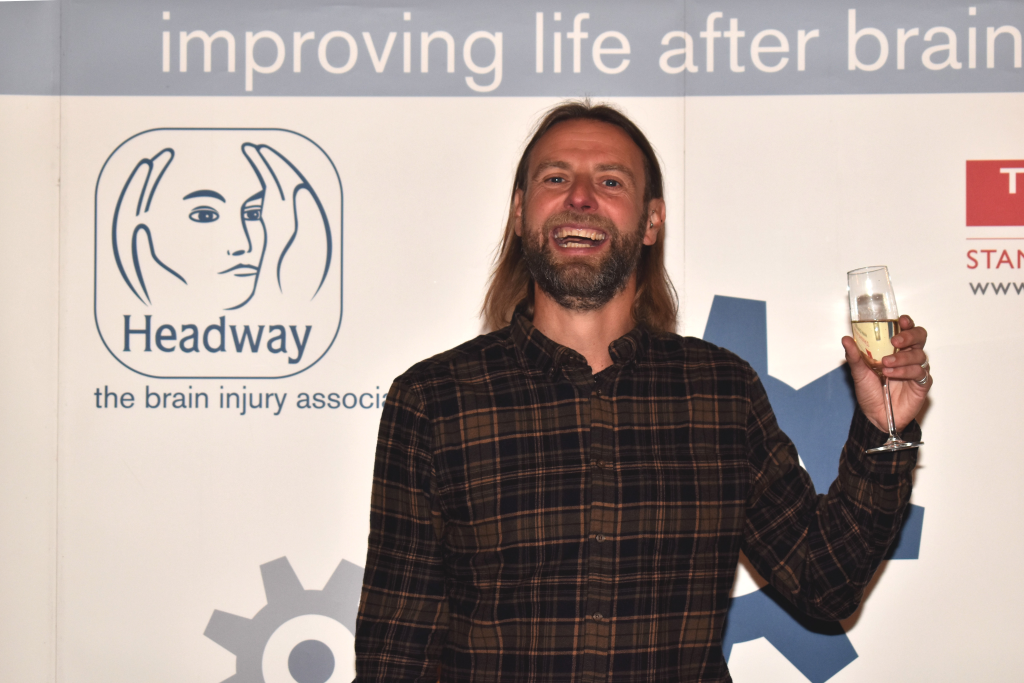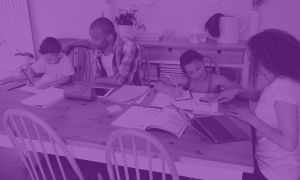
Learning Disability Week: How We Can All Do Better to Support Friends and Peers with Learning Disabilities
This week is Learning Disability Week, and this year’s powerful theme “Do You See Me?” invites all of us to pause, reflect, and
March is Brain Injury Awareness month, and if you didn’t know it already, we have personal experience with a brain injury here at Future Toolbox.

Hello, I’m Mark, and I suffered a traumatic brain injury (TBI) in 2012. I now live with brain fog because of my injury. Brain fog is not a medical condition, instead, it is a symptom of another condition. It is a type of cognitive dysfunction or mental fatigue. So, this can include things such as a lack of mental clarity, mental problems, and inability to concentrate or focus. Or even worse…all of them!
To me, a brain injury can be like the wonderful English weather. The sun is shining one minute, and the next, it’s raining. It’s so unpredictable, and it can change very quickly.
The journey has been difficult, but I am honoured and humbled to say that in December 2022 I won the Headway UK Alex Richardson Achiever of the Year. This award celebrates the outstanding determination, strength, and courage of brain injury survivors. As you can imagine, this award means the world to me (and my wife, Jules), and it shows that life after brain injury is possible.
Brain fog is characterised by confusion, forgetfulness, lack of focus and mental clarity. When your brain is exhausted, it becomes harder to think, reason and focus. When you have mental fatigue, it is a feeling of extreme tiredness, and your head can feel fuzzy and sluggish. It is like a battery that needs recharging.
Fatigue is soooo different from being tired! For me, it can kick in at any point and affects my ability to concentrate, my short-term memory and even my emotions. The day is going well, and then suddenly, BANG! There it is, out of nowhere, fatigue hits.
My initial symptoms are that I feel my eyes glazing over, and sometimes they water a little. There can be a dull ache on the right side of my head, exactly at the point of the impact of my TBI. Yawning is also obvious, but I’m sure others notice my blank expression too. My energy levels drop, confusion kicks in, and sometimes sleep is needed. My least favourite is becoming irritable and snappy, which is not my normal style.
Fatigue will always affect me; however, it has got easier over time as I have understood it more. It can also lessen over your recovery. One way to manage fatigue is to identify your triggers and implement processes to help you cope in different situations. With every injury, there are certain things it will prevent you from doing. These can be difficult to process, but it doesn’t mean you can’t still enjoy life; you just have to adapt.
For me, I was told I could no longer play football because of the risk of contact and further injury. It was tough hearing I could no longer do something I enjoyed so much, but it didn’t mean I could no longer exercise. I just needed to find an alternative fitness activity; the one I chose was running. It is so easy to focus on the things you can no longer do. But, it is so important to focus on what you can do instead and have a positive mindset. I think you will be surprised how much you can still do. You never know, you might find something you enjoy even more!
Regular exercise is a great way to help ease your brain fog, as it can enhance the neuroplasticity in your brain. It also releases adrenalin into your blood, which can improve your memory.
Having a good diet can benefit your brain’s functionality. Foods with certain vitamins, such as Eggs with Vitamin B and Avocado with Vitamin E, can help improve your memory and cognition. In addition, foods with antioxidants can help protect the brain from inflammation and cognitive deterioration and improve learning.
Staying on this theme, drinking lots of water positively affects the brain. When you drink water, it increases the blood flow and oxygen to your brain. This can improve your cognition and concentration.
Not getting enough sleep is a common cause of brain fog. So, ensuring you get your recommended hours of sleep per night and good sleep hygiene, can improve brain fog.
Having a positive mindset. So, practising mindfulness can be hugely beneficial, not only to brain fog but to your overall recovery too. Mindfulness can help you to reduce stress, so when you get overwhelmed and overstimulated, it can help to calm you down. It is so easy to get into a negative headspace or view the world through tainted lenses if you have gone through something traumatic, like a brain injury. So, practising mindfulness to see the positives and recognising that you need to be kind to yourself can make a massive difference to how your view your life post-injury.
Take breaks and recognise what you can and can’t do. Once you realise what is harder to do or no longer possible, it helps to move to the next stage of accepting the changes and managing brain fog. Identify what triggers your fatigue and implement coping methods to help yourself. For instance, I find it energy-sapping sitting in a busy, noisy environment. So, I ask those I’m with if it’s ok to sit in a quieter corner, with my back to the wall to cut out the noise.
If you have a brain injury and would like some simple coping tips of the side effects from someone who has experienced a TBI, look at my ‘Brain or Shine’ blog posts for more information. It has been created to help not only those living with brain injury but the family and friends who have also been affected by their loved one suffering these side effects. Sometimes, it’s the little things that make the biggest differences.
To learn more about my story and the journey that my wonderful wife, Jules, and I went through, read our book ‘What The Hell Just Happened’. From brain injury to breast cancer and bereavement, this book is the compelling, true story of how we stayed strong in the face of adversity. At times, we were beaten, battered and broken, our mental health and resilience were tested to the max. But our story will not only make you laugh and cry, it will inspire you to never give up, no matter what life throws at you!
In our podcast episode this week, the wonderful Anna Leggett joined us. She, like Mark, has also sustained a brain injury. She too has published a book about her experience called Understanding and Living Well With Post-concussion Syndrome.
We share our stories about our lives post-injury and discuss coping methods for the daily challenges it brings. Not only to ourselves but the knock-on effect on those around us, such as family, friends and colleagues.
Brain fog is not just something you suffer from if you have a brain injury. Brain fog is also evident in many other conditions, including strokes, heart conditions, cancer and menopause, affecting many people. So, listen to this episode to understand what a friend, family member or work colleague may be experiencing.
To find out more on this topic…
Follow us on social media!

This week is Learning Disability Week, and this year’s powerful theme “Do You See Me?” invites all of us to pause, reflect, and

Exam season can be one of the most stressful periods in a student’s academic journey. The pressure to perform, achieve high grades,

When it comes to succeeding at school, in life, and beyond, there’s one skill that often makes the biggest difference; self-discipline. This